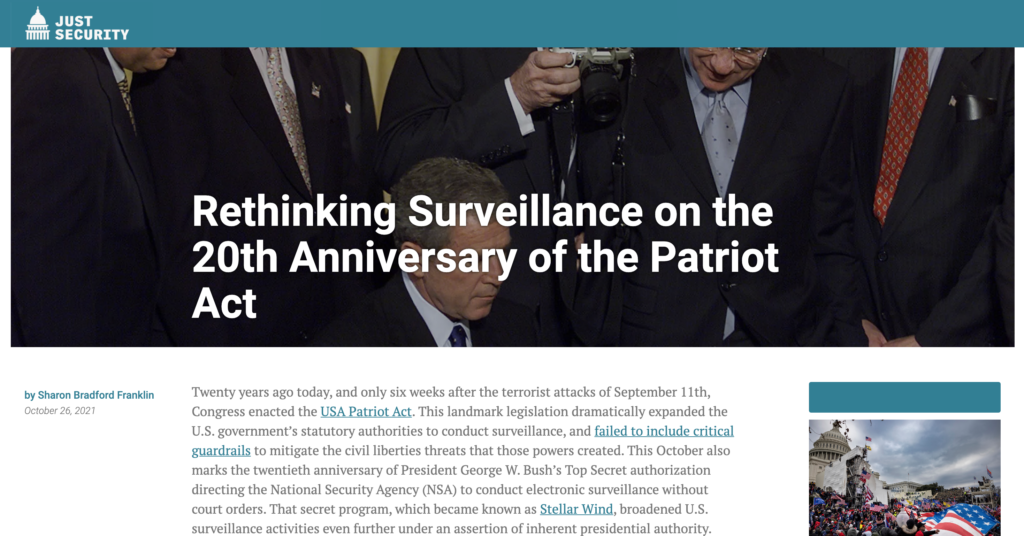Just Security: Rethinking Surveillance on the 20th Anniversary of the Patriot Act

This is an excerpt from an article authored by Sharon Bradford Franklin, CDT’s Co-Director of the Security and Surveillance Project, and published on Just Security on October 26, 2021 – the 20th anniversary of the passing of the Patriot Act. Read Sharon’s full Just Security post here.
***
Twenty years ago today, and only six weeks after the terrorist attacks of September 11th, Congress enacted the USA Patriot Act. This landmark legislation dramatically expanded the U.S. government’s statutory authorities to conduct surveillance, and failed to include critical guardrails to mitigate the civil liberties threats that those powers created. This October also marks the twentieth anniversary of President George W. Bush’s Top Secret authorization directing the National Security Agency (NSA) to conduct electronic surveillance without court orders. That secret program, which became known as Stellar Wind, broadened U.S. surveillance activities even further under an assertion of inherent presidential authority.
In the intervening years, the government has abandoned some of the expansive surveillance powers it claimed in 2001, and Congress has further amended the statutes governing surveillance to incorporate some safeguards for privacy rights. But many of the powers that initially were only granted on a temporary basis in the Patriot Act have been made permanent, and Congress has codified authority for some of the surveillance activities originally conducted under brazen claims of inherent presidential power.
As we mark this two-decade anniversary, it is time for a comprehensive reexamination of the authorities governing U.S. intelligence surveillance activities.
Read the rest of Sharon’s analysis + recommendations on Just Security’s post.


